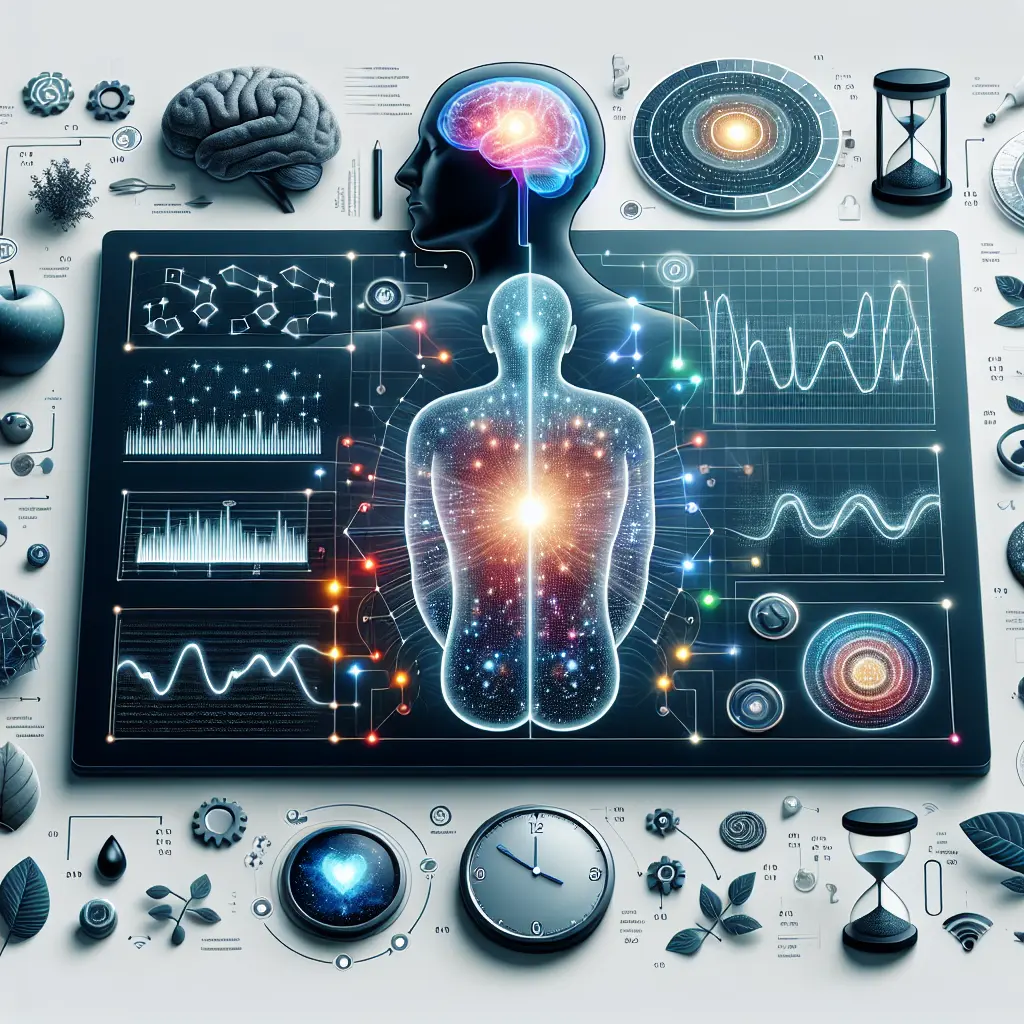
In today's fast-paced, technology-driven world, optimizing sleep patterns has become a focal point for individuals seeking improved health and well-being. Biohacking techniques offer innovative approaches to enhance sleep quality and establish better sleep habits. From syncing with our natural circadian rhythm to utilizing advanced sleep tracking, these methods promise transformative rest. This section explores recent developments and insights in the realm of sleep biohacking, providing actionable strategies for anyone eager to improve their sleep and wellness journey.
Understanding the Science of Sleep
The foundation of optimizing sleep patterns begins with understanding the science behind sleep. Our body's internal clock, or circadian rhythm, plays a pivotal role in regulating sleep-wake cycles. Disruptions to this rhythm can significantly affect sleep quality and overall health. Embracing biohacking techniques that align with our natural biological rhythms can enhance sleep naturally, leading to more restorative nights.
A recent conversation on Revolution Health Radio highlighted the importance of metabolic health in maintaining a balanced circadian rhythm. Dr. Casey Means emphasized how mitochondrial function impacts energy levels and overall wellness, underscoring the connection between metabolism and optimal sleep patterns.
Sleep Environment Optimization
Creating a conducive sleep environment is crucial for improving sleep quality. Factors such as room temperature, lighting, and noise levels can greatly influence one's ability to fall asleep and stay asleep. Sleep environment optimization involves curating these elements to support better sleep habits.
Practical Tips for Enhancing Your Sleep Space
Innovative sleep hacks, such as using blackout curtains to eliminate light pollution and white noise machines to block out disruptive sounds, are simple yet effective strategies. Additionally, incorporating natural materials in bedding and minimizing electronic device usage before bedtime can further enhance sleep quality.
Leveraging Technology for Sleep Tracking
Technology has introduced a new era of biohacking for better sleep through advanced sleep tracking tools. Devices like smartwatches and sleep apps provide insights into sleep cycles, helping individuals pinpoint areas that require adjustment. By analyzing data such as REM and deep sleep durations, users can tailor their routines to improve sleep quality.
A recent article on the AI chip boom illustrates how technology is advancing rapidly, offering sophisticated tools for personal health optimization. As these technologies become more accessible, they empower individuals to take charge of their sleep and wellness journey.
Case Study: Reducing Biological Age Through Sleep Optimization
One intriguing case study is that of a 60-year-old CEO who reportedly reduced her biological age to 35 by implementing specific lifestyle changes, including optimizing her sleep patterns. As detailed in Live Longer with AI, she focused on enhancing her circadian rhythm alignment and incorporating strategic biohacks such as consistent sleep schedules and mindfulness practices.
This case underscores the potential of targeted biohacking techniques not only in improving sleep but also in promoting longevity and overall health. By prioritizing restorative rest, individuals can significantly impact their biological age and vitality.
The Role of Nutrition and Lifestyle Choices
Beyond environmental adjustments and technology, nutrition plays a significant role in optimizing sleep patterns. A balanced diet that supports metabolic health can influence the quality of rest. Joel Greene, in his discussion on the Immunity Code Diet, highlights the importance of dietary choices in regulating metabolism and supporting sleep biohacks.
Integrating Lifestyle Changes for Better Sleep
Moreover, lifestyle choices such as regular physical activity and stress management are integral components of a holistic approach to better sleep. Engaging in relaxing activities like yoga or meditation before bedtime can prepare the body for restful sleep.
Challenges and Considerations
While biohacking techniques offer promising strategies for improving sleep quality, it's essential to consider individual differences and potential challenges. Not all techniques may be suitable for everyone, and some may require trial and error to determine effectiveness.
For instance, a recent piece on weight loss struggles illustrates how individuals may experience varying side effects from interventions, highlighting the need for personalized approaches. Similarly, when exploring biohacks for better sleep, it's important to remain patient and adaptable.
Conclusion: Unlocking the Secrets to Restorative Sleep
In our journey to optimize sleep through biohacking techniques, we've explored the crucial role of aligning with our circadian rhythm and how understanding sleep science can guide us toward better rest. By crafting an ideal sleep environment and leveraging technology, such as advanced sleep trackers, we gain valuable insights into our sleep patterns, paving the way for personalized improvement. The intersection of nutrition, lifestyle choices, and sleep optimization further underscores the multifaceted approach needed to enhance sleep quality and overall wellness.
The remarkable case of reducing biological age through sleep optimization illustrates the profound impact of these strategies on longevity and vitality. However, it's essential to acknowledge that biohacking is not one-size-fits-all. Individual differences necessitate a personalized approach, encouraging patience and adaptability as we explore what works best for us.
As you reflect on these insights, consider how you might incorporate these biohacking techniques into your own life. Begin by experimenting with small changes in your environment or routine and observe their effects on your sleep quality. Remember, transformative rest is within reach when we commit to understanding and enhancing our natural rhythms.
I invite you to share your experiences with sleep optimization in the comments below. What strategies have worked for you? What challenges have you faced? Your insights could be the key to helping others on their journey to better sleep and well-being.
Together, let's continue to explore the fascinating world of biohacking and unlock the secrets to more restorative rest, one night at a time.
Sleep well and thrive,
Justin Monroe